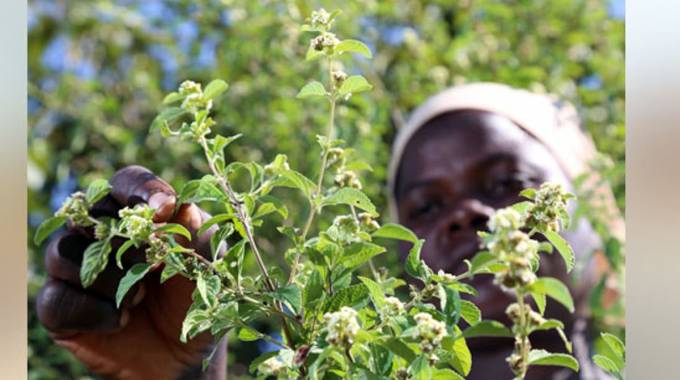
Tendai Chara
AN expert on the international tea market says for zumbani to penetrate the international herbal tea market, there is need for scientific research to substantiate the herb’s supposed medicinal properties.
Ms Caroline Jacquit, the projects manager of Bio-Innovation Zimbabwe (BIZ), a non-governmental organisation which researches and facilitates knowledge-sharing around existing and potential commercial applications for indigenous plants, said if more scientific research is done on Zumbani, the herb has the potential of making it to the top of international herbal tea market.
“We have Rooibos, an indigenous South African herbal tea which has, for centuries, taken the world by storm. Our own zumbani has the potential to break into the international herbal tea market. Scientific research should be done to substantiate the herb’s supposed medicinal qualities,” Ms Jacquit said.
Ms Jacquit said for any herbal tea to be accepted on the international market, especially the European one, producers of the tea should provide scientific proof of the tea’s medicinal and nutrition qualities.
“In the case of zumbani, we might like the smell and taste but we do not know if it is even safe to drink it. There is no scientific research that substantiates the claims that the herb has medicinal and qualities. The European market will surely demand such information,” added Ms Jacquit.
She said if zumbani gets the nod to be sold on the international market, it will prove to be a good return on investment.
“It is a low input crop that will surely be a good return on investment. Since the herb can be picked from the wild, the major costs that are associated with it will be labour and maybe transport,” added Ms Jacquit.
Calls have been made by players in the local herbal tea market for the commercial production and international marketing of zumbani, which is increasingly being used as a home remedy for Covid-19.
